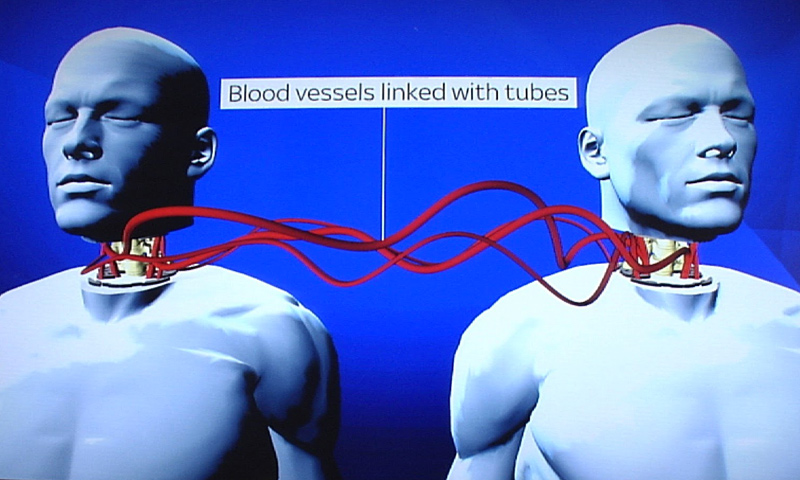The Syrian doctor Qais Asfari got the attention of Arab and local media for his participation in the first head transplant surgery.
Through Facebook, Enab Baladi interviewed Qais Asfari after he shared the news about his participation in the rare surgery on his personal page in April.
Back then, he told Enab Baladi that he works as a lecturer at Cambridge University in a team that works to provide more scientific pieces of evidence to explain all that relates to the behavior and phenomena of the brain and its interaction with the body within the so-called artificial intelligence development field.
Craig Brierley, the Head of Research Communications Office of External Affairs and Communications at Cambridge University mailed Enab Baladi after the publication of the interview with the doctor. He confirmed that Qais Asfari’s name does not exist in the university’s records and that there is no evidence that he gave any lectures there. However, Mr. Brierley did not comment on Asfari’s participation in the famous surgery.
All Enab Baladi’s attempts to reach the doctor again to check Cambridge’s denial failed. It turned out that Asfari has closed all his personal accounts on the different social media platforms.
In the previously conducted interview, Enab Baladi communicated with Asfari through facebook after he mentioned that he would be participating in the world’s first head transplant surgery with the Italian surgeon Sergio Canavero.
The interview was published in the issue no.268 of the newspaper, which has been published on April 9, 2017; it tackled the surgery and the circumstances which paved the way for his participation.
Enab Baladi was not the only media outlet to communicate with Asfari for a number of Arab media had published statements’ by the Syrian doctor confirming that he was a lecturer at Cambridge University, including the Al Medicine issued by AL Publishing, in Dubai.
The Syrian doctor confirmed to Enab Baladi that he “attended a number of lectures by the Italian surgeon Sergio Canavero” at the University of Cambridge, where Asfari works as a lecturer. A thing which facilitated his participation alongside neurosurgeons and neurobiology scientists, “and it was agreed that [Asfari] to be part of the event.”
Asfari said that “he will participate in the phase relating to the supervision of the used solutions and monitoring brain activity and neurons after connecting the electrodes to the body. This phase will follow the stage of the head transplant by a number of surgeons and the members of a specialized medical team.”
According to the personal information which Asfari gave to Enab Baladi, he is a Syrian scientist based in the UK, born in 1982 with a master’s degree in evolutionary biology from the University of Oxford. He also holds a Ph.D. from the Imperial University of London in the field of neurobiology and that he works as a lecturer at Cambridge University.
Asfari provided further information on the surgery and said that he aspires to raise the level of education and scientific research in Syria and to develop science as a field and scientific research in curricula that keep with modern science.
In the first of its kind surgery, the head of Valery Spiridonov, a Russian young male, who suffers from a chronic paralysis and muscles atrophy, will be separated from his body to be transplanted in a dead body.
The Italian Surgeon, Canavero, believes that the Russian young man will be able to move his new body after he failed to control his own body, the one he will be giving away soon.
The surgery, which will involve about 150 doctors, surgeons and scientists, will take place in December.











